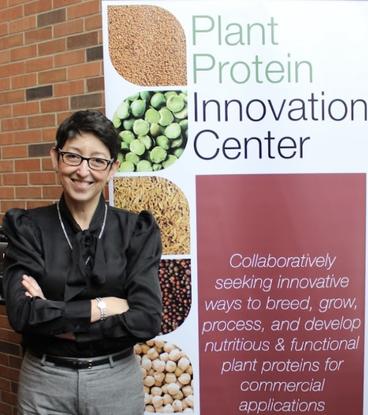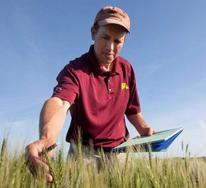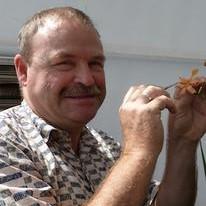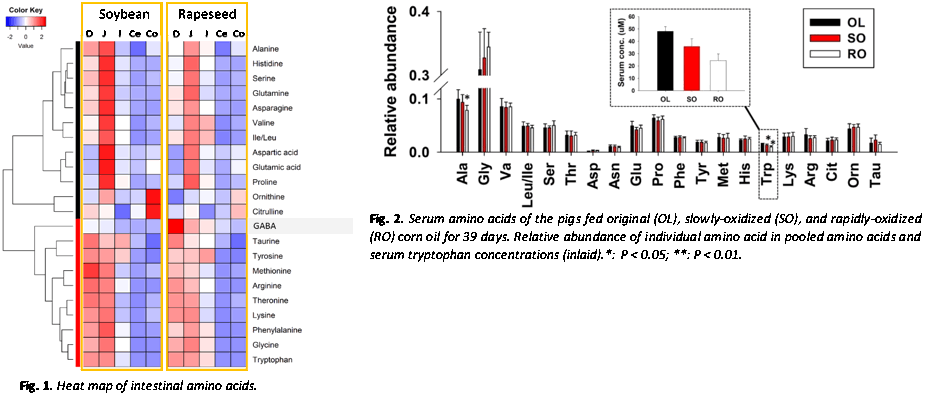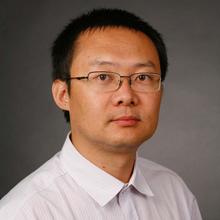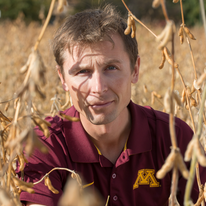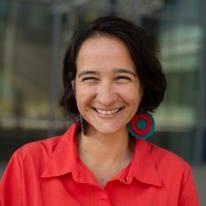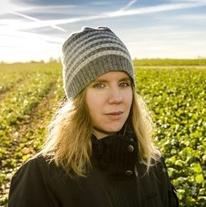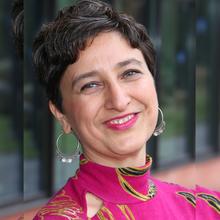Director and Founder
B. Pam Ismail, Center Director and Professor, Department of Food Science & Nutrition, [email protected]
Dr. Ismail is a Professor in the Department of Food Science and Nutrition at the University of Minnesota (U of M). She has over 23 years of experience in Food Chemistry research focused on analytical chemistry, protein chemistry, and chemistry and fate of bioactive food constituents. Her research focuses on structural characterization and enhancement of functionality, safety, bioavailability, and bioactivity of food proteins, following novel processing and analytical approaches. Specifically, her research group investigates ways to improve functionality, thermal stability, and bioactivity of food proteins, as well as ways to reduce allergenicity following enzymatic and other natural protein modification approaches. Protein structural characterization is performed using a number of proteomic analytical tools, aiming at linking structure to function. Listed below are highlighted publications:
- Emerging Camelina Protein: Extraction, Modification, and Structural/Functional Characterization
- Limited hydrolysis combined with controlled Maillard-induced glycation does not reduce immunoreactivity of soy protein for all sera tested
Dr. Ismail has established a collaborative research program focused on developing plant-based protein ingredients, while addressing industry-identified challenges and opportunities, and while seeking sustainable and environmentally friendly sources. Her research has been supported by several funding sources including USDA, Minnesota Department of Agriculture, Midwest Dairy Association, Dairy Research Institute, Healthy Foods Healthy Lives, Forever Green Initiative, General Mills Inc., and Schwan's, among others.
Jim Anderson, Professor, Department of Agronomy & Plant Genetics,
[email protected]
Jim Anderson is a Professor in the Department of Agronomy and Plant Genetics at the University of Minnesota. Dr. Anderson received his B.S. in Agronomy from the University of Minnesota in 1987, M.S. in Crop Science from the University of Kentucky in 1989, and Ph.D. in Plant Breeding from Cornell University in 1992. Dr. Anderson came to the University of Minnesota in 1998 after previous positions at North Dakota State University and the USDA-ARS in Pullman, WA.
Dr. Anderson leads plant improvement programs focusing on wheat, intermediate wheatgrass (Kernza®) (initiated in 2011), and field pennycress (initiated in 2013). Research on each species includes cultivar development and the investigation of breeding/genetic principles related to crop improvement. Research is focused on identifying genes underlying economically important traits including disease resistance and grain quality and using marker-assisted and genomic selection for cultivar and germplasm development.
Dr. Anderson has developed 16 varieties and is the co‐developer of 8 others in four different market classes of wheat. He has authored/co-authored 140 articles in peer-reviewed journals and teaches a plant breeding course.
Neil Anderson, Professor, Department of Horticultural Science,
[email protected]
Neil Anderson is a Floriculture Professor and J. William Fulbright Scholar, directing the Herbaceous Ornamental Breeding Program for the University of Minnesota, Dept. of Horticultural Science. His crop specialty is the genus Chrysanthemum, focusing on pyrethrum, ornamentals, and the sole N. American species. Additional herbaceous perennial crops being bred by his program include: Linum, Lilium, Gladiolus, Iris, and Gaura. Seed protein content and nutraceuticals are of particular interest in the Linum (flax) breeding program, funded by the Forever Green Initiative.
Dr. Anderson leads a team of scientists working on these crops (1 postdoc, 2 research scientists, 4 graduate students) and advises undergraduate / graduate students.
George Annor, Associate Professor, Department of Food Science & Nutrition, [email protected]
Dr. George A. Annor is an Associate Professor of Cereal Chemistry and Technology in the Department of Food Science and Nutrition at the University of Minnesota. He is also the chair for the General Mills Endowed Professorship in Cereal Chemistry and Technology. Dr. Annor obtained his Ph.D. in Food Science in the Department of Food Science at the University of Guelph in Canada. His research interests with respects to the Plant Protein and Innovation Center include the non-thermal modification of cereal proteins, starch-protein-lipid integrations, cereal grain quality and functionality and wheat dough rheology. Dr. Annor is interested in exploring the use of cold plasma techniques to modify cereal proteins and flours. He is also interested in the use of Electrochemically Activated water for protein modification purposes. Dr. Annor also has experience in the application of statistics for process optimization.
Peter Bruggeman, Ernst Eckert Professor, Director of Graduate Studies, Department of Mechanical Engineering; Director, High Temperature and Plasma Laboratory [email protected]
Dr. Peter J. Bruggeman is currently Professor and associate department head of Mechanical Engineering. He also serves as the Director of the High Temperature and Plasma Laboratory (HTPL) at the University of Minnesota. Prof. Bruggeman obtained his PhD from Ghent University, Belgium and was an Assistant Professor of Applied Physics at the Eindhoven University of Technology, the Netherlands, from 2009 until he joined the University of Minnesota in 2013.
A significant part of his research is focused on the fundamental physical and chemical processes of low temperature non-equilibrium plasmas. These processes enable many environmental, biomedical and renewable energy applications and technologies. In the context of PPIC, Dr. Bruggeman is interested in the possibility to treat proteins for food applications with plasma.
He has published over 100 papers in peer-reviewed journals, delivered invited and keynote lectures at over 70 international meetings and was a lecturer at many summer schools in Germany, USA, Canada and Brazil. His research has been recognized by several awards including the 2012 Hershkowitz Early Career Award, the 2013 Institute of Pure and Applied Physics Young Scientist Medal and Prize in Plasma Physics, the 2016 US Department of Energy Early Career Award and the 2018 Peter Mark Memorial Award of the American Vacuum Society.
Prof. Bruggeman is an active member of his research community. He is currently the section editor for Plasmas and Plasma-Surface Interactions of the Journal of Physics D: Applied Physics (Institute of Physics Publishing, UK) and serves as an editorial board member of several other journals. He also co-edited the “2017 Plasma Roadmap” giving directions for the future development of the field of low temperature plasma. Prof. Bruggeman is also an elected member of the board of directors of the International Society of Plasma Chemistry.
Chi Chen, Professor, Department of Food Science & Nutrition, Department of Animal Science, [email protected]
My research lab conducts mechanistic investigations on the metabolic processes following food and feed intakes in humans and animals. Our technical platform combines mass spectrometry-based untargeted metabolomics and targeted metabolite analysis, stable isotope tracing, in vitro biochemical analysis, animal model, and human trial.
Enlisted are some of our past and ongoing research projects on amino acid digestibility and amino acid metabolism.
- Distribution of amino acids in the intestinal digesta (duodenum, jejunum, ileum, cecum, and colon): a comparison of rapeseed meal and soybean meal in pigs (Fig.1) (link).
- Influences of dietary energy and amino acid intakes on the composition of fecal metabolome.
- Effects of consuming oxidized vegetable oils on endogenous amino acid metabolism: Oxidized oil selectively decreases serum tryptophan through transcriptional upregulation of tryptophan-NAD+ catabolic pathway in mice and pigs (Fig.2) (link)
Xiaoli Chen, Professor, Department of Food Science & Nutrition,
[email protected]
Dr. Chen is a Professor and General Mills Chair in Genomics for Healthful Foods in the Department of Food Science and Nutrition at the University of Minnesota. She has been studying obesity and type 2 diabetes for over 20 years. Her laboratory conducts animal and cell-based studies to address how dietary components regulate energy metabolism and obesity. Her research has been funded by NIH, American Diabetes Association, and American Heart Association. Her laboratory is interested in the metabolic effect of amino acids or plant protein-based diets on obesity and diabetes.
Fernanda Furlan Gonçalves Dias, Assistant Professor, Department of Food Science & Nutrition, [email protected]
Dr. Dias is an Assistant Professor at the Department of Food Science and Nutrition at the University of Minnesota (U of M). She has a Ph.D. in Food Science and postdoctoral training in Analytical Chemistry from the University of Campinas, Brazil. She also was a postdoctoral scholar in Food Science at the University of California, Davis (UC-Davis).
Her research focuses on the use of analytical techniques and chemometrics tools to guide the development of environmentally friendly strategies to produce the next generation of health-promoting plant-based ingredients. She is especially interested in lipidomic markers of oil quality and extractability and bioactivity of phytochemicals. Her research aims to address critical issues faced by the food industry, which includes the development of sustainable processes for producing healthy and functional foods with minimal environmental impact to feed our steadily growing population.
Dan Gallaher, Professor, Department of Food Science and Nutrition,
[email protected]
Dr. Gallaher is a Professor in the Department of Food Science and Nutrition at the University of Minnesota. He has been engaged in nutrition research for over 40 years, primarily studying how diet influences the risk of chronic diseases, with a particular focus on colon cancer, obesity, and type 2 diabetes. Most of his work involves the use of animal models.
His laboratory is interested in evaluation of protein quality using animal model assays such as PDCAAS. Studies are underway examining the protein quality of pennycress protein, a winter annual oilseed species. In addition work is in progress on a USDA project to examine protein quality of pea protein isolates.
Dr. Gallaher is a member of the University of Minnesota Cancer Center, the Minnesota Obesity Prevention Center, and is an advisory board member for the Healthy Foods Healthy Lives Institute. He teaches a course in vitamin and mineral biochemistry as well as a laboratory course for nutrition students.
Kathleen Hill Gallant, RD, Associate Professor, Department of Food Science & Nutrition, [email protected]
Kathleen (Katie) Hill Gallant, PhD, RD is an Associate Professor of Nutrition in the Department of Food Science and Nutrition at the University of Minnesota-Twin Cities. Prior to coming to the University of Minnesota in June 2020, she was an Assistant Professor at Purdue University in West Lafayette, Indiana. Dr. Hill Gallant holds a BS in Dietetics and an MS in Kinesiology from the University of North Dakota and earned her PhD in Nutrition from Purdue University. She has been a registered dietitian (RD) for 15 years. Dr. Hill Gallant leads a clinical and translational research program focused on mineral metabolism in chronic kidney disease. The Hill Gallant lab uses classic metabolic balance studies (controlled feeding) and isotopic tracer methods to study mineral absorption, kinetics, and whole-body balance in both human clinical studies and rat models of chronic kidney disease.
Chronic kidney disease (CKD) is a major chronic disease, affecting approximately 37 million American adults. Patients with CKD develop bone and mineral disorders that lead to increased morbidity and mortality from cardiovascular events and bone fragility fractures. Disordered phosphorus metabolism is central to the development of these bone and mineral problems, and patients are often prescribed phosphate binder medications or low phosphorus diets in an attempt to limit absorbed phosphorus load. However, traditional dietary phosphorus restrictions have largely ignored the large variation in bioavailability among different sources of phosphorus. There is fast-growing interest in the use of plant proteins for kidney disease patients due to a variety of proposed potential benefits – including reduced phosphorus bioavailability. Dr. Hill Gallant is interested in studying phosphorus bioavailability of novel plant proteins and the effects of plant proteins and plant-based diets on mineral metabolism in patients with chronic kidney disease as a potential diet therapy option in these patients.
Bo Hu, Professor, Department of Bioproducts and Biosystems Engineering, [email protected]
Dr. Bo Hu is a Professor in the Department of Bioproducts and Biosystems Engineering, University of Minnesota. He has more than 20 years of active research experience specifically in biomass utilization, fermentative conversion, and waste management. Dr. Hu’s team has been working on several bio-conversion platforms, such as lichen biofilm co-cultivation of fungi and microalgae, pelletized fungal fermentation, and solid and hemi-SolidSF of filamentous fungi, to produce bioprducts and biofuel from agricultural waste and residue, and to remove nutrients and pollutant from contaminated water. His recent projects are involved in fungal and bacteria fermentation to improve nutritional value of corn ethanol coproducts, oilseed meal, and food waste; and upcycle then into valued added animal feeds.
Aaron Lorenz, Professor, Soybean Breeding and Genetics, Department of Agronomy and Plant Genetics, [email protected]
Aaron Lorenz is a Professor of Soybean Breeding and Genetics in the Department of Agronomy and Plant Genetics at the University of Minnesota. The University of Minnesota Soybean Breeding Program develops specialty, food-type, and general-use soybean varieties adapted to the Upper Midwest. Dr. Lorenz’s research focuses on the optimization and application of genomics and phenomics to an applied cultivar development program. Additional areas of research include the mapping of genes underlying complex traits relevant to soybean production, and the development of soybean varieties adapted to new cropping systems. Dr. Lorenz teaches introductory plant genetics and breeding to undergraduates, and advanced plant breeding to graduate students. He received a B.S. from the University of Minnesota in 2002, an M.S. in Plant Breeding from Iowa State in 2005, and a Ph.D. in Plant Breeding and Plant Genetics from the University of Wisconsin in 2008. Following his Ph.D., he was a Postdoctoral Research Associate at Cornell University from 2009 to 2010 and an Assistant Professor at the University of Nebraska from 2010 to 2015. He joined the faculty of the University of Minnesota in 2015.
M. David Marks, Professor, Department of Plant and Microbial Biology,
[email protected]
Development of pennycress and camelina as new cash/cover crops. We are working with the Food Science group at UMN to identify new varieties of the oilseed crops pennycress and camelina. Importantly, these crops have the potential to be grown during the fallow period between the harvest of corn and the establishment of soybeans the following year. Thus, they have the potential to serve as a new source for human nutrition without requiring new farmlands. We will be screening for varieties with improved protein content and quality.
Tom Michaels, Professor, Department of Horticultural Science,
[email protected]
Tom Michaels studies classical plant breeding and genetics as it applies to food crops. His primary focus is on dry edible bean improvement. His current work targets development of new dry bean cultivars for organic production systems and those growing for local markets such as CSA and food co-ops. Recently he has selected within heirloom bean populations for lines well adapted to upper Midwest US environments. He also directs project improving sweet sorghum (for syrup production), lettuce (for hydroponic production) and industrial hemp.
Dry edible bean is a major protein source in diets around the world and is especially important in food-insecure nations. It is also a crop that, in food-secure nations, is stuck in a culinary rut of canned beans in tomato sauce. Tom is eager to pursue questions about bean protein that will benefit the food-insecure through increased protein quantity and quality, and food-secure through the development of bean protein as an ingredient in exciting and nutritious new foods.
Gary Reineccius, Professor Emeritus, Department of Food Science & Nutrition, [email protected]
Gary Reineccius has been actively involved in flavor research for more than 47 years. During this time he has published over 230 research articles. His research focuses on two areas: flavor related challenges and ingredient encapsulation. Flavor work has been quite broad covering methods for flavor analysis, off flavor identification and remediation, flavor release in the mouth when eating and its encapsulation (protection and controlled release).
Currently he is conducting three research projects on plant proteins. One project is focused on identifying the chemical components in pea protein isolates that contribute off flavors and the second is similar but targets pennycress protein isolates. Our assumption is that the industry can better design processing techniques to provide bland protein isolates if the offending odorants are known. The third project is focused on improving the stability of flavorings when added to foods containing plant protein isolates. There is evidence that flavor components will form covalent bonds with the sidechains of proteins thereby removing their contribution to flavor perception.
Robert Stupar, Professor, Department of Agronomy and Plant Genetics,
[email protected]
Robert Stupar is a Professor in the Department of Agronomy and Plant Genetics at the University of Minnesota. He received a B.S. degree in Biology from the University of Minnesota and a Ph.D. degree in Plant Breeding and Plant Genetics from the University of Wisconsin. His current appointment includes 75% research and 25% teaching responsibilities. Dr. Stupar’s research program focuses on the genetics and genomics of legume crop species, with an emphasis on soybean. His group uses classical mutagenesis and modern plant biotechnology to study the functions of genes in plants, with translational applications for crop improvement.
Levi Teigen, Assistant Professor, Clinical Nutrition, Department of Food Science and Nutrition, [email protected]

Levi Teigen, PhD, RD is an Assistant Professor in Clinical Nutrition in the Department of Food Science and Nutrition at the University of Minnesota. He is also a faculty member of the Microbiota Therapeutics Program and an adjunct faculty member with the Department of Medicine-Division of Gastroenterology, Hepatology, and Nutrition at the University of Minnesota. With over a decade of experience as a clinical dietitian, the primary mission of the Teigen lab is to advance the paradigm of medical nutrition therapy to improve patient care and outcomes. His research involves both: 1) use of body composition technologies to improve nutrition assessment and 2) analysis of gut microbiota structure and function and the potential role of diet to modulate this. His long-term goal is to exploit his unique clinical and research background to link effects of diet on microbiota functionality to develop evidence-based precision nutrition strategies.
Job Ubbink, Professor and Head, Food Science and Nutrition Department,
[email protected]
His research focusses on the physical chemistry and materials science of solid and semi-solid food systems, and comprises the study of phase transitions, barrier properties, and rheology of food systems. A specific research interest is the relation between structure and dynamics of the glassy state of bio-based materials as it impacts water uptake, mechanical properties and molecular diffusion. Dr. Ubbink’s research is closely connected to product and process development, covering technology areas such as powder technology, encapsulation, extrusion and freezing. He and his team have worked on dairy powders, including products for infant and clinical nutrition, coffee and beverages, dehydrated culinary products, extruded cereals, baked goods and frozen foods, including ice cream. Research activities in plant proteins include the texturization by extrusion of protein and protein-starch blends and structure-property relations of the extruded products.
Dr. Ubbink was trained as a physical and polymer chemist at the University of Leiden (The Netherlands) and he obtained his PhD in Chemical Technology and Materials Science at Delft University of Technology (The Netherlands). He has worked for over 15 years in R&D positions in the food industry, including 11 years at the Nestlé Research Center (Lausanne, Switzerland). Prior to joining the University of Minnesota, Dr. Ubbink was associated with Cal Poly (San Luis Obispo), the University of Bristol (UK) and the ETH Zurich (Switzerland) and he has taught as visiting professor at the School of Food Engineering, University of Campinas (Brazil).
Zata Vickers, Professor, Department of Food Science & Nutrition,
[email protected]
Professor Zata Vickers teaches, conducts research, and directs the Sensory Center at the Department of Food Science and Nutrition at the University of Minnesota. She began her work on food textures at Cornell University with Professor Malcolm Bourne studying crispness. Her more recent research focuses on the sensory attributes of foods and on other factors influencing acceptability and choice. This includes research related to the long term acceptability of foods, measuring satiety, and the impact of sensory attributes and liking on satiety. She teaches courses in food science and in sensory evaluation of foods.
Juliana M.L.N. de Moura Bell, Associate Professor, Departments of Food Science and Technology and Biological and Agricultural Engineering, University of California Davis, [email protected]
Dr. de Moura Bell research program focuses on the development of bio-guided processing strategies that make use of structure and functionality as the benchmark for the production of healthier, safer, and sustainable foods. Her research goal is to develop structure/function-based processes to produce foods that will improve human health, with the translation of these processes into the industrial realm being the ultimate goal of her work. To accomplish this goal, her research has focused on the development of sustainable processing strategies to extract, modify, and recover food compounds; conversion of agricultural waste streams/food processing by-products into valuable compounds; and evaluation of the effects of thermal treatments on the functionality and biological activities of food compounds.
Mirko Bunzel, Professor, Department of Food Chemistry and Phytochemistry, Karlsruhe Institute of Technology (KIT), Germany, [email protected]
Dr. Bunzel is a Professor at the Department of Food Chemistry and Phytochemistry at the Karlsruhe Institute of Technology (KIT), Germany. Prior to joining KIT, he was an Associate Professor at the Food Science and Nutrition Department of the University of Minnesota (2007-2011). His research focuses on plant cell wall polymers such as polysaccharides and phenolic polymers. His group develops chromatographic and spectroscopic approaches to structurally characterize these highly versatile polymers. These methods are applied in order to monitor changes of plant cell wall polysaccharides during ripening, storage of plant based foods, and food processing, but also to understand physiological processes such as fiber fermentation in the human colon and in ruminants.
Osvaldo Campanella, Professor, Department of Food Science and Technology, Ohio State University University, [email protected]
Professor Osvaldo Campanella is the Carl E. Haas Endowed Chair in Food Industries at the Department of Food Science and Technology at the Ohio State University since 2019. Previously he was at Purdue University in the Agricultural and Biological Engineering Department, a member of the Whistler Carbohydrate Research Center and the Department of Food Science. Prior to Purdue, he was also a faculty member at Massey University in New Zealand. Professor Campanella has published more than 250 scientific articles related to extrusion rheology, and food process engineering. He has published two books related to the extrusion processes for food and non-food biological materials and the science and technology of fibers in food systems. Professor Campanella holds a degree in Chemical Engineering from the University of Buenos Aires, Argentina and a PhD in Food Engineering from the University of Massachusetts, USA.
Lingyun Chen, Professor, Department of Agricultural, Food and Nutritional Science, University of Alberta; Canada Research Chair (Tier II), [email protected]
Dr. Lingyun Chen is Professor in the Dept. of Agricultural, Food and Nutritional Science at the University of Alberta and Canada Research Chair (Tier II) in plant protein area. She is internationally recognized for advancing the knowledge of plant protein structure-function relationships, and applying these to develop protein ingredients of improved physicochemical, nutritional, sensory, and functional properties towards food applications. For example, molecular structures of the plant proteins have been strategically designed to make competitive alternatives to the animal-based ingredients for meat analogue and dairy substitute applications.
She has also substantially contributed to the understanding of plant protein unfolding and aggregation to fabricate protein matrices (hydrogels, fibers, films, micro- and nano-particles), and applying this knowledge to develop safe and naturally sourced biomaterials. She has a special interest in plant protein based delivery systems of nutraceuticals compounds (e.g. unsaturated fatty acids, vitamins and antioxidants) to create new functional foods that can improve public health and decrease the risk of chronic disease. Special emphasis has been placed on plant protein sources in western Canada such as pulses, cereals, and oilseeds to develop their value-added processing and applications.
Audrey Girard, Assistant Professor, Department of Food Science, University of Wisconsin-Madison, [email protected]

Audrey Girard is an assistant professor specializing in food protein chemistry in the Department of Food Science at the University of Wisconsin-Madison. She earned a B.S. in Bakery Science & Management from Kansas State University and a Ph.D. in Food Science & Technology from Texas A&M University, with a dissertation on modifying gluten functionality using polyphenols. Audrey’s overarching research goal is to use protein chemistry to improve food quality and sustainability, as well as to promote human health. Her lab currently has projects to modify pulse protein flavors and textures, to enhance diversity and functionality of soy varieties through collaboration with plant breeders, to develop bioplastics using a range of proteins and bioplasticizers, and to valorize underutilized dairy proteins (https://girard.foodsci.wisc.edu/).
Lutz Grossmann, Assistant Professor, Department of Food Science, University of Massachusetts Amherst, [email protected]
Lutz Grossmann is an Assistant Professor at the Food Science Department at UMass Amherst since 2021. He graduated with a Ph.D. in food science from the University of Hohenheim in Germany. His research focuses on facilitating a sustainable food system transition by designing holistic approaches to increase the consumption of plant- and microbial protein-rich foods. He is especially interested in combining downstream processing technology with molecular, physicochemical, and engineering concepts to create food textures that are nutritious, sustainable, and tasty.
Jim House, Professor, Department of Food & Human Nutritional Sciences, University of Manitoba, [email protected]
Dr. House is Professor in the Department of Food and Human Nutritional Sciences, University of Manitoba. He has research expertise in 3 primary areas: 1) Nutritional biochemistry, particularly related to the interactions between water-soluble vitamins and amino acid metabolism; 2) Egg and poultry science; and 3) Quality of plant-based proteins for the human diet. He has organized national workshops in Canada related to plant protein quality, and has published both original research, reviews and commentaries related to the regulatory aspects of measuring protein quality in North America. Examples of recent publications related to plant protein quality include:
- Potential impact of the digestible indispensable amino acid score as a measure of protein quality on dietary regulations and health
- Research and regulatory gaps for the substantiation of protein content claims on foods
- Determination of the protein quality of cooked Canadian pulses
Dr. House has extensive collaborations with researchers across Canada, the U.S. and internationally, and has worked with leading ingredient and food manufacturing companies, as well as commodity organizations, to advance our understanding of the factors influencing the quality of protein in human foods. In addition to his appointment within the Faculty of Agricultural and Food Sciences, University of Manitoba, Jim is also a Research Scientist within the Richardson Centre for Functional Foods and Nutraceuticals, and the Canadian Centre for Agri-Food Research in Health and Medicine, both in Winnipeg, MB. Jim currently serves as the President for the Canadian Nutrition Society (2018-19).
Buddhi Lamsal, Professor, Department of Food Science & Human Nutrition, Iowa State University, [email protected]
Dr. Lamsal is a Professor of Food Engineering and Bioprocessing in the Department of Food Science and Human Nutrition at Iowa State University and a certified Agricultural Engineer in state of Iowa. He has been engaged in protein research for 15 years, primarily studying proteins’ structure-functional relationship, functionalizing plant proteins for food applications, and characterizing their ingredient function. He also worked in fermentation-based modification of protein, especially for monogastric feed digestibility.
Currently, Dr. Lamsal’s protein research involves high-power sonication based improved extraction procedure for plant proteins (soy and legume proteins) and its effect on protein quality and broader range of ingredient functionality. In addition to optimizing the power sonication-assisted protein extraction process, the research will investigate the changes in molecular structure of extracted protein due to sonication and evaluate the functional, nutritional, and quality characteristics of resulting protein.
Dr. Lamsal has published more than 70 peer-reviewed journal articles, 6 book chapters, and 2 edited books. Dr. Lamsal is an active member of various national scientific societies (AOCS, IFT and AACCI).
Yonghui Li, Associate Professor, Kansas State University, [email protected]
Dr. Yonghui Li is an Associate Professor and Director of the Wheat Quality Lab at Kansas State University. His research focuses on understanding the structure, chemistry, interaction, and functionality of proteins and other components for the development of quality and functional grain foods and ingredients. He has received over $4.2M funding from the USDA, KS grain commissions, and grain and food industries. He has published 100+ journal articles and two patents. He is an associate editor for the Journal of Food Science and editorial board member of multiple journals.
Kaustav Majumder, Associate Professor, Department of Food Science and Technology, University of Nebraska, [email protected]
Dr. Kaustav Majumder is an Associate Professor at the Department of Food Science and Technology, University of Nebraska, Lincoln (UNL). He obtained his Ph.D. from the University of Alberta, Canada, and Postdoctoral training from University of Guelph, Canada. The overarching goal of his research program in UNL is to understand the impact of dietary proteins and peptides on human health, and to develop peptide-based functional foods for the prevention and management of cardio-metabolic disorders. His laboratory also interested in developing green technologies to produce novel plant-peptides based flavor ingredients for functional foods. He has published over 40 peer-reviewed articles, 10 book chapters, and presented in various national and international conferences.
Maneka Malalgoda, Assistant Professor, Department of Food and Human Nutritional Sciences, University of Manitoba, [email protected]
Dr. Maneka Malalgoda is an Assistant Professor in the Department of Food and Human Nutritional Sciences at the University of Manitoba and her research focus is Grain Chemistry and Processing Quality. Maneka completed her Ph.D. at the North Dakota State University and her postdoctoral training at the Plant Protein Innovation Center at the University of Minnesota. She is currently studying grain-based proteins for novel applications and the use of protein ingredients in grain-based food systems. She is also interested in protein allergenicity and developing mass spectrometry-based techniques for allergen detection and quantitation.
Alessandra Marti, Adjunct Associate Professor, Department of Food Science and Nutrition, University of Minnesota & Professor, Department of Food, Environmental and Nutritional Sciences, University of Milan (Italy), [email protected]
Alessandra Marti is an Professor at the Department of Food, Environmental and Nutritional Sciences (DeFENS) at University of Milan since 2018. She graduated with a Ph.D. in Food Biotechnology from the University of Milan in 2010. She was a Postdoctoral Research Associate at University of Minnesota from 2013 to 2015, and since 2016 she is an Adjunct Faculty at the Department of Food Science and Nutrition at University of Minnesota. As a food technologist, her main research activity focuses on the development of food products from cereals, pseudocereals and pulses (or their fractions) with enhanced quality traits, also by setting up and applying suitable technological or bio-technological processes.
Kevin Murphy, Professor, Department of Crop and Soil Sciences, Washington State University, [email protected]
Kevin Murphy is a Professor in the Dept. of Crop and Soil Sciences at Washington State University, where he leads the specialty crop breeding and agronomy program. The goal of his Sustainable Seed Systems Lab is to increase the genetic- and nutritional-diversity of cropping systems across Washington State through the development of biofortified cultivars and implementation of ecologically-rooted production practices. His group focuses on breeding and/or cropping systems research in quinoa, spelt, buckwheat, perennial grains, proso millet, and barley. His research emphasizes crops, varieties, and/or farming systems that optimize nutritional value and provide tolerance to heat, drought, and diseases while improving yield, flavor and end-use quality of the target crops. Internationally, Kevin and his team conduct participatory breeding and agronomic research on quinoa, barley, and millets in Rwanda, Malawi, and Ecuador.
Karolina Östbring, Associate Professor, Department of Food Technology, Engineering and Nutrition Lund University, [email protected]
Dr. Karolina Östbring is an Associate Professor at the Department of Food Technology, Engineering and Nutrition at Lund University, Sweden. She received her PhD in Experimental Medical Science (Lund University) in 2015 focusing on the extraction of green leaf proteins and their effect on appetite. Thereafter her interest in the isolation of plant proteins has been broadened to also include rapeseed, hemp, oat, pea and faba bean protein. She is particularly interested in isolation and separation aspects on the semi-pilot scale and its effect on process efficiency and functional properties. In the last years, high moisture extrusion cooking has been the main theme with the goal to increase the use of crops that are (or could be) cultivated in the Nordic hemisphere.
Laurice Pouvreau, Expertise Leader Protein Technology, Wageningen Food & Biobased Research, Wageningen University and Research, [email protected]
Dr. Pouvreau’s research focuses on the protein transition and she is involved in projects ranging from process optimization to ingredient functionality of dairy and meat alternatives. She is leading an expert group focusing on Protein technology, and more specifically plant proteins (https://www.wur.nl/en/Research-Results/Research-Institutes/food-biobased-research/Expertises/Protein-technology.htm) at Wageningen University and Research. Laurice trained as a protein chemist in France, after which she acquired her Ph.D. from the Food Chemistry chair group of WUR, studying potato proteins. Laurice further pursued an interest in plant proteins in a contract research institute, and subsequently at Cargill, where she gained experience in (mild) fractionation, structuring, and application in food products using a broad range of plant proteins. Laurice is driven to contribute to improving the quality of new sources of protein and delivering sustainable and tasty food products.
Arti Singh, Associate Professor, Department of Agronomy, Iowa State University, [email protected]
Dr. Arti Singh is an Associate Professor in the Department of Agronomy at Iowa State University with 11 years of plant breeding experience. After obtaining her PhD degree from G.B. Pant University in India, she worked as a Post-doctoral fellow at the University of Saskatchewan and then at Agriculture and Agri-Food Canada prior to joining Iowa State University. She has authored a textbook ‘Disease and Insect Resistance in Plants’ and published peer reviewed research articles in reputed and high impact journals including Proceeding of National Academy of Sciences and Trends in Plant Science. She has been funded competitive grants by the USDA-NIFA, NSF, Iowa Soybean Association, IA Soybean Research Center, and United Soybean Board. She leads a green (Vigna radiata) and black gram(Vigna mungo) breeding program, and her research projects are geared towards harnessing genetic diversity for genetic gain, utilization of advanced data analytics particularly machine and deep learning for early disease signatures, and genetic/genomic studies on abiotic and biotic stress resistance.
Brennan Smith, Research Leader, Food Processing and Sensory Quality Research Unit, US Department of Agriculture, [email protected]
Brennan Smith Ph.D. is the Research Leader for the Food Processing and Sensory Quality Research Unit at the USDA-ARS Southern Regional Research Center in New Orleans, LA. He oversees a diverse set of research projects involving rice quality and utilization, tree nut and peanut allergy, warm water aquaculture, catfish quality and utilization, and alternative protein research. His primary research interest is food security as it relates to the future availability of dietary protein. His current research focuses on protein characterization of agricultural commodities, as well as protein isolation, modification, and application into foods.
Nesli Sözer, Research Professor, Industrial Biotechnology and Food, VTT Technical Research Centre of Finland, [email protected]
Nesli Sözer is a research professor in smart and sustainable food production at VTT Technical Research Centre of Finland and a Docent from Helsinki University in Food Technology. She has more than 20 years expertise on food material science and food ingredient/product design. Nesli is passionate in immersing food science and technology into novel concepts. Currently, she is leading international (funded by Horizon Europe and EIT KIC) and national (funded by Business Finland and Academy of Finland) projects focusing on plant proteins, meat and dairy alternatives and decentralized personalized food production. Nesli is the chair of Healthgrain Forum (https://healthgrain.org/) an association whose vision is to promote science-based concepts fully unlocking the health promoting potential in the entire grain food production chain to obtain healthy, convenient and appealing foods.
Eric JB von Wettberg, Professor, Department of Plant and Soil Science, University of Vermont, [email protected]
Publications
Additional Publications
Dr. von Wettberg is a Professor in the Department of Plant and Soil Science at the University of Vermont. He has research expertise in 4 primary areas: 1) Ecology and genetics of crop domestication and crop diversification; 2) Evolutionary ecology and ecological genetics of wild relatives of crops; 3) Harnessing the diversity of plant genetic resources and genebanks, and 4) Breeding for rotational and intercropping value of crops. He has extensive international experience through work as a co-PI on the USAID Feed the Future Innovation Laboratory for Climate Resilient Chickpea, and a joint Russian-Taiwanese project on mungbean improvement. His current research involves breeding legumes to simultaneously improve their contribution to nutritional value and soil health.
Dr. von has extensive collaborations with researchers across the U.S. and internationally, such as in Ethiopia, India, Turkey, and Russia. In addition to his appointment within the College of Agriculture and Life Sciences at the University of Vermont, Eric is also a courtesy faculty member at Peter the Great Polytechnic University in St. Petersburg, Russia, has been a Chinese Academy of Sciences visiting scholar at the South China Botanical Garden, a Fulbright Specialist Scholar to Addis Ababa University, and a visiting scholar at Ecole Nacional Superieure de Agonomique de Toulouse.
Youling Xiong, Professor, Department of Animal and Food Sciences, University of Kentucky, [email protected]
Dr. Xiong is an expert on protein chemistry, functionality, and applications. His research focuses on the interaction of animal and plant-derived proteins and peptides with various natural and functional food compounds (phenolic antioxidants, lipids, minerals, polysaccharides, etc.) for healthy food production. He has vast experience with structural modification of proteins utilizing various enzymatic and physicochemical methods (proteases, cross-linking agents, ultrasound, pH shifting, thermal processes, etc.) to promote solution, oil-water interfacial, and structure-forming properties of proteins. His lab has generated more than 300 research publications along with over 140 presentations throughout the world. As a career achiever, he has received many national and international awards. He is a former scientific editor of Journal of Food Science and current editor of Food Bioscience, and serves on the editorial boards on several other scientific journals
